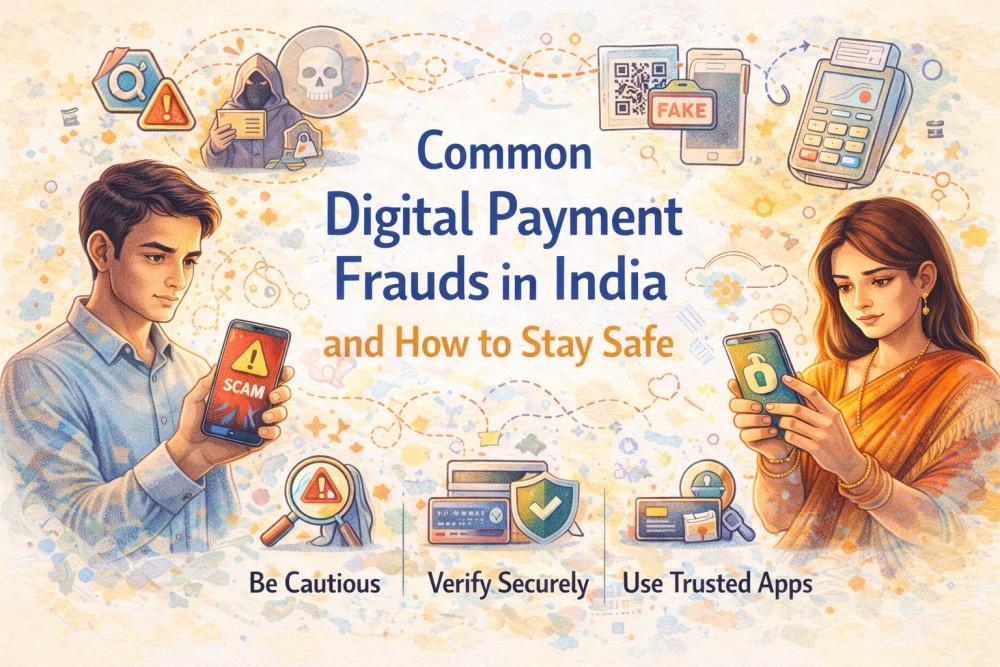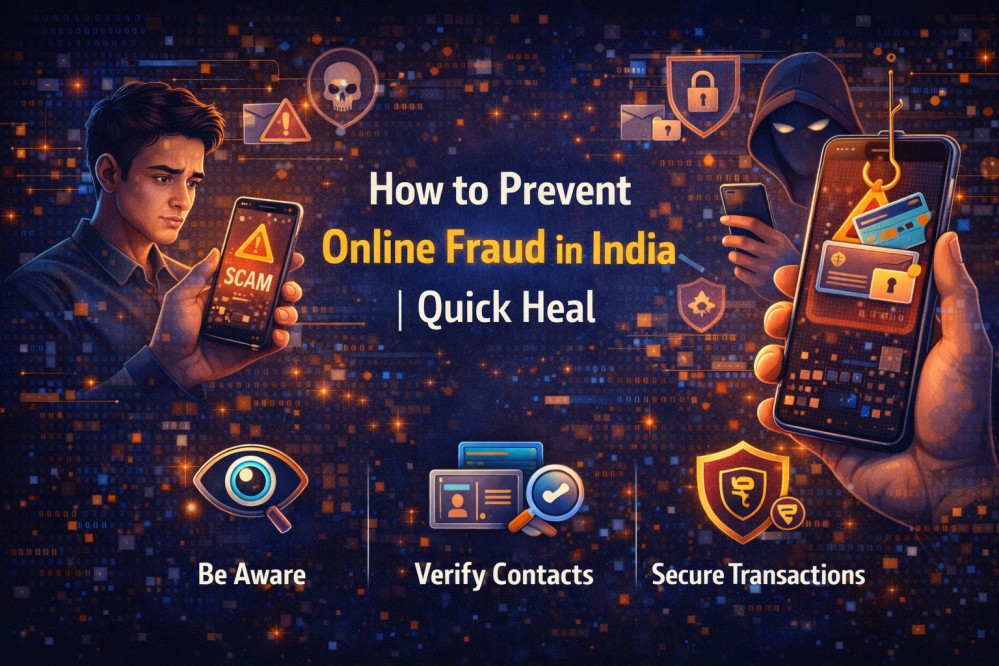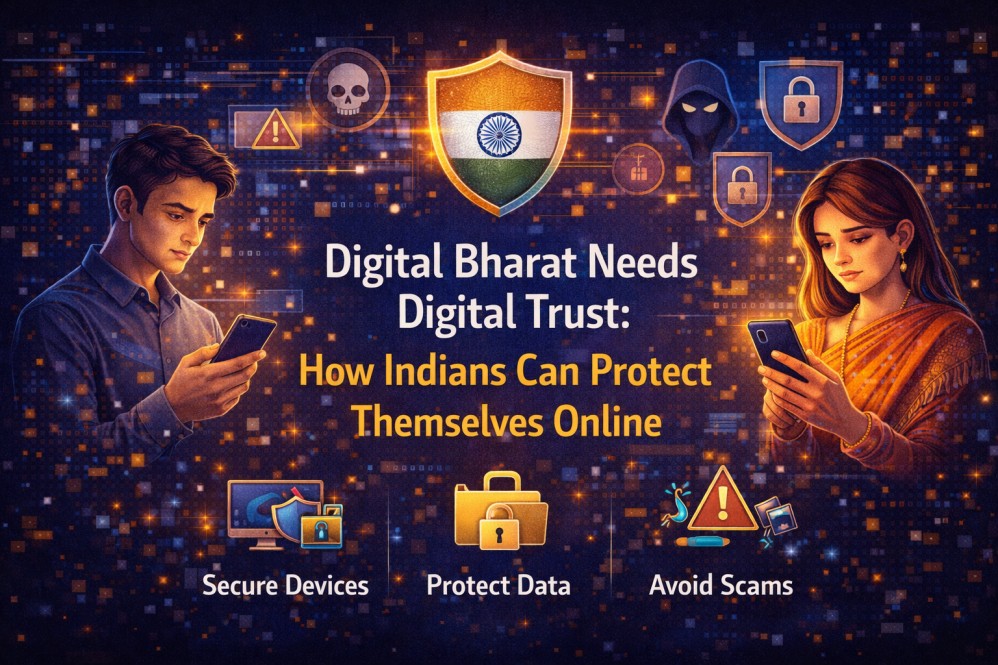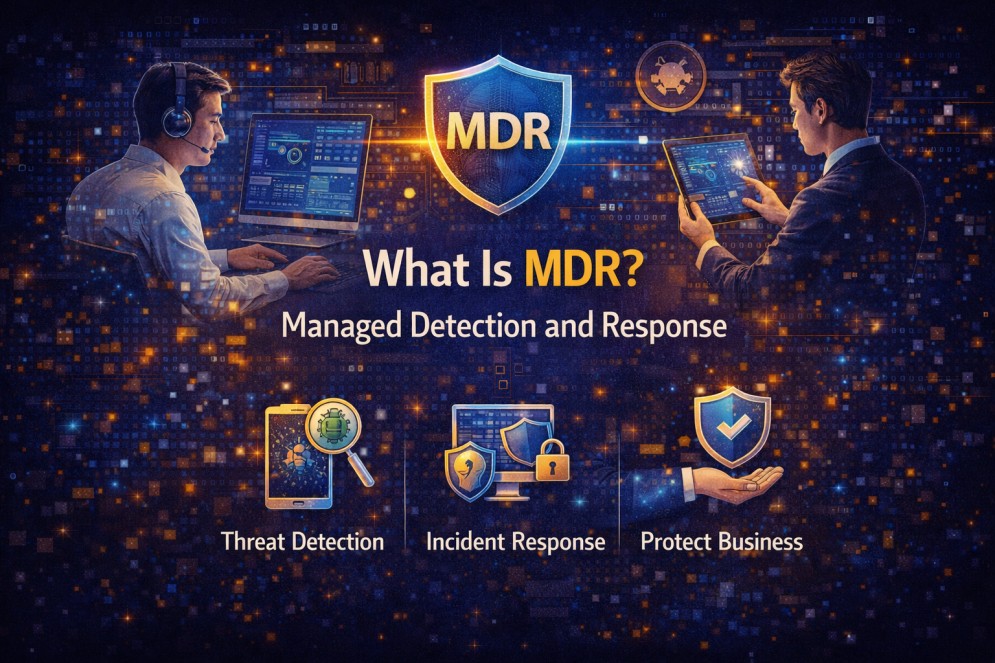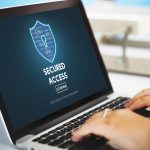
May

Tips & Tricks to Protect Your Computer from Keyloggers and Spyware
-
Quick Heal / 9 months
- May 28, 2025
- 0
Keyloggers are designed to stealthily record every keystroke you make, potentially exposing your passwords, credit card numbers, and personal conversations. Spyware, on the other hand, silently collects information about your computer usage, browsing habits, and installed software. Both pose significant risks to your privacy and can lead to identity theft, financial fraud, and other damaging consequences. In this article, we’ll explore practical tips and tricks to help you protect your computer from these invasive threats.
Install Reliable Anti-Spyware and Antivirus Software
One of the most effective ways to defend against keyloggers and spyware is to install trusted antivirus and anti-spyware software. These security solutions are specifically designed to detect keyloggers, spyware, and other malicious programs. They continuously scan your system, identifying and neutralizing threats before they can cause harm.
When choosing antivirus and anti-spyware software, opt for reputable brands known for their robust protection. Quick Heal Total Security is a comprehensive security suite that offers advanced features like anti-keylogger protection, real-time scanning, and proactive threat detection. It provides an additional layer of defense against these sneaky intruders.
Keep Your Operating System and Software Updated
Regularly updating your operating system and software is crucial in protecting against keyloggers and spyware. Software developers frequently release updates that include security patches and bug fixes. These updates address known vulnerabilities that cybercriminals exploit to infiltrate your system.
| Operating System | Update Frequency |
|---|---|
| Windows | Monthly |
| macOS | Periodically |
| Linux | Varies by distro |
By keeping your operating system and software up to date, you close potential entry points for keyloggers and spyware. Enable automatic updates whenever possible to ensure you have the latest security enhancements.
Use Strong, Unique Passwords
Using strong, unique passwords for each of your accounts is essential to prevent keyloggers from capturing sensitive login information. Avoid using easily guessable passwords like “123456” or “password.” Instead, create complex passwords that include a mix of uppercase and lowercase letters, numbers, and special characters.
Consider using a password manager to generate and store strong passwords securely. Password managers encrypt your passwords and automatically fill them in when needed, reducing the risk of keyloggers intercepting them.
Enable Two-Factor Authentication (2FA)
Two-factor authentication (2FA) adds an extra layer of security to your accounts, making it harder for keyloggers to gain unauthorized access. With 2FA enabled, you’ll need to provide an additional form of verification, such as a one-time code sent to your phone or generated by an authenticator app, in addition to your password.
Even if a keylogger captures your password, the attacker won’t be able to access your account without the second factor. Enable 2FA on all your important accounts, including email, social media, and financial services.
Avoid Clicking on Suspicious Links or Downloads
One of the most common ways keyloggers and spyware infect computers is through malicious links and downloads. Cybercriminals often disguise their malware as legitimate software, enticing you to click on a link or download an attachment.
Be cautious when clicking on links from unknown sources or downloading files from untrusted websites. Hover over links to check their destination before clicking. If you receive an unexpected email with an attachment, verify its authenticity with the sender through a separate communication channel.
Use Virtual Keyboards for Sensitive Data
When entering sensitive information, such as passwords or credit card details, consider using an on-screen or virtual keyboard. Virtual keyboards are software-based keyboards that you can use with your mouse or touchscreen.
By using a virtual keyboard, you bypass the physical keyboard, making it harder for hardware keyloggers to capture your keystrokes. Many operating systems have built-in virtual keyboards, and some security software also includes this feature.
Monitor Your Computer’s Activity
Regularly monitoring your computer’s activity can help you detect suspicious behavior that may indicate the presence of keyloggers or spyware. Keep an eye out for unusual system slowdowns, unexpected pop-ups, or unfamiliar programs running in the background.
Use a keylogger scanner or anti-spyware tool to perform regular scans of your system. These tools can identify and remove malicious software that may have slipped past your initial defenses. Stay vigilant and investigate any unusual activity promptly.
Be Careful with Public Wi-Fi Networks
Public Wi-Fi networks, such as those in cafes, airports, or hotels, are prime targets for cybercriminals. These networks are often unsecured, allowing attackers to intercept data transmitted over the network, including keystrokes and sensitive information.
When using public Wi-Fi, avoid entering sensitive data like passwords or financial information. If you must access sensitive accounts, use a virtual private network (VPN) to encrypt your internet connection and protect your data from prying eyes.
Educate Yourself About Common Phishing Techniques
Phishing is a common tactic used by cybercriminals to trick users into installing keyloggers or spyware. Phishing emails often impersonate legitimate companies or individuals, urging you to click on a malicious link or download an infected attachment.
To protect yourself from phishing attempts:
- Be cautious of unsolicited emails, especially those with a sense of urgency or threatening language.
- Check the sender’s email address for inconsistencies or suspicious domain names.
- Avoid clicking on links or downloading attachments from unknown sources.
- If in doubt, contact the supposed sender through a verified channel to confirm the authenticity of the email.
Protect your PC with Quick Heal
By implementing these tips and tricks, you can safeguard your privacy, protect your sensitive information, and enjoy a more secure computing experience. Stay informed about the latest security threats and best practices to detect keyloggers and spyware. Investing in a comprehensive security solution like Quick Heal Total Security can provide you with the tools and resources you need to detect keylogger activity and keep your computer protected.
Don’t wait until it’s too late. Take proactive steps today to shield your computer from the dangers of keyloggers and spyware. Your privacy and security are worth protecting.
Check Out Our Full Antivirus Range

